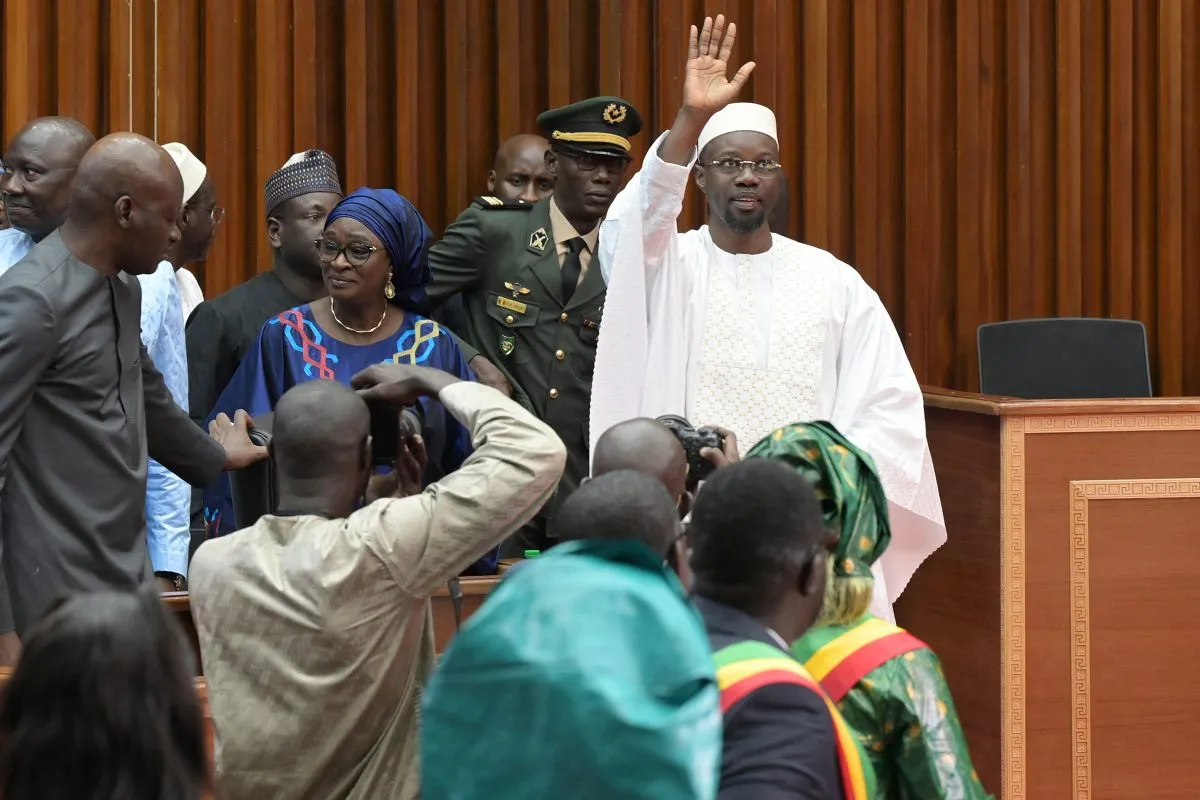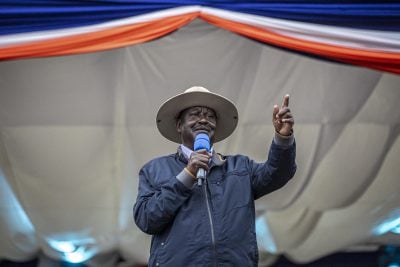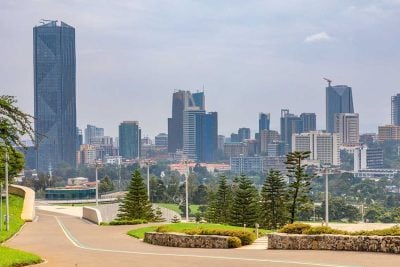In Senegal’s November legislative poll the PASTEF party of President Bassirou Diomaye Faye and Prime Minister Ousmane Sonko won in a landslide, taking 130 of the 165 seats in parliament. It also won 40 of the 46 departments in the country, giving it the most significant victory in a Senegalese election since 1988.
The win puts the nail in the coffin of the divided and distinctly jaded opposition, whose leading light in the poll was former President Macky Sall. His TWS coalition won just 16 seats, down from 83 in the last poll.
PASTEF’s commanding election victory could have ramifications for businesses. Prior to the poll, President Faye and Sonko had struggled to make much of an impression. Despite Faye winning the March presidential election on a platform of change, little appeared to have radically changed between his first months in office and the previous administration of Sall.
But the failure to follow through on a series of campaign promises was likely linked to the limited mandate that PASTEF had in the national assembly, where it fell far short of a majority. November’s election changed that.
Foreign policy shift
President Faye now has a mandate to bring about real change and will face barely any resistance in parliament. The effect could be significant.
“With newly reinforced political capital, PASTEF has the institutional stability and coherence to pass reforms that align with the government’s ‘Vision Senegal 2050’ national transformation agenda,” explains Tiffany Wognaih, senior associate at JS Held, a strategic advisory firm.
In the weeks following the legislative election, Senegal announced that France, its one-time colonial master, would need to withdraw its troops from the country and would no longer be permitted to retain a base in Senegal.
The announcement, a far cry from his ambivalent response to France prior to the November poll, indicates the decisive action that Faye is now willing to take vis-à-vis his pre-election promises to remove French influence from Senegal.
In addition, shortly after the election President Faye agreed to travel to Russia following an invitation from President Vladimir Putin. This marks a further turn away from Senegal’s Western allies, with which it maintained close relations under President Sall.
While Faye has been eager to point out that relations with France remain cordial and Paris will continue to be a key partner for Senegal, a realignment of Senegalese international relations looks likely.
Businesses prepare for new relations
How far the government is willing to go with regards to renegotiating contracts and rebalancing relationships with foreign businesses – a central campaign pledge – is another question.
In mid-December, Faye’s government announced its budget, which emphasised deficit reduction. It will see an 8.8% reduction in the funds given to state institutions, with the intention to prioritise sectors like agriculture and professional training.
On the one-hand a pro-market budget suggests that the interests of business are being taken into consideration.
“Notably, although Sonko and Faye both campaigned on a populist platform, the administration has not taken a significantly hawkish stance towards foreign investors, instead showing a willingness to engage with them,” says Wognaih.
The budget also suggests that the government is now capable and willing to pursue its policies with more vigour.
In the longer term this could include making changes to the operating environment for foreign firms, given PASTEF’s pre-election reform pledges.
“The significant victory gave them all the power. They can do what they want: change the constitution, validate all the laws they want. There is no opposition yet,” says Nicolas Soyere, a representative of the EU Chamber of Commerce in Dakar.
The government’s emphasis on anti-corruption efforts long espoused by Sonko and Faye could also lead to scrutiny of companies that worked closely with the Sall administration, says Wognaih.
“Because the current government has deemed that there were several major instances of corruption and misreporting under the former government there is likely to be more scrutiny on companies who were close to Sall,” he says.
A Senegalese entrepreneur in Dakar, speaking off the record, says that all this has some businesses worried.
“The first nine months of PASTEF have already led lots of businesses to raise the alarm… Lots of businesses will close in the coming months if the state doesn’t come to their assistance,” he argues.
Oil and gas industry prepares for scrutiny
One of the sectors likely to be a major focus of renewed government attention, given its potentially transformative impact on the future of Senegal, is oil and gas.
Senegal’s state-owned oil company, Petrosen, believes that the two main deposits of oil and gas in the country could deliver an annual average of 700bn CFA francs ($1.1bn) over 30 years. On the campaign trial ahead of his general election victory, Faye pledged to keep more of that expected windfall in the country. His government has commissioned a review of contracts with oil and gas firms, with results due in 2025.
Moves against companies deemed to have underpaid on tax suggest that the government is not in a mood for compromise. A $68.6m tax bill was handed to Australian oil and gas company Woodside in August.
“Tax exemptions, which were frequently granted by previous administrations, will now be significantly limited and subject to strict criteria to ensure they genuinely benefit the national economy,” says Mamadou Baldé, chief of party for the USAID TRACES project at the US-based Natural Resource Governance Institute.
The government will, however, look to prioritise changes to regulations over amendments to existing contracts, Wognaih predicts.
“Unlike its Sahelian neighbours, Senegal is highly unlikely to engage in resource nationalism, with operators likely to face proactive changes to policies and regulations – such as new local content or procurement laws – rather than retroactive changes to contracts.”
“The government has already indicated that they plan to introduce a new set of policies in the hydrocarbons sector in 2025, focused on the development of a local content strategy and updating the tax framework,” Wognaih says.
Retrospective changes unlikely
Baldé agrees that updating existing legislation rather than upending existing contracts is likely to be a priority.
“The PASTEF-led government’s strong mandate and commitment to addressing contractual imbalances suggest that indirect approaches may be pursued. These could include revisiting excessive tax exemptions and operational terms within the bounds of existing contracts. The government may also focus on optimising revenues through stricter enforcement of legal and contractual obligations to ensure a more equitable distribution of benefits for Senegal.”
However, Baldé believes that Faye is aware of the need to keep investors on side. The government’s pro-market budget attests to its desire to maintain at least a moderately good relationship with businesses, he says.
“PASTEF will remain open to foreign investment,” says Baldé. “Incoming investors will be treated fairly under the PASTEF-led government, as the country urgently needs foreign investment, regardless of its origin.”
Want to continue reading? Subscribe today.
You've read all your free articles for this month! Subscribe now to enjoy full access to our content.
Digital Monthly
£8.00 / month
Receive full unlimited access to our articles, opinions, podcasts and more.
Digital Yearly
£70.00 / year
Our best value offer - save £26 and gain access to all of our digital content for an entire year!

 Sign in with Google
Sign in with Google 



